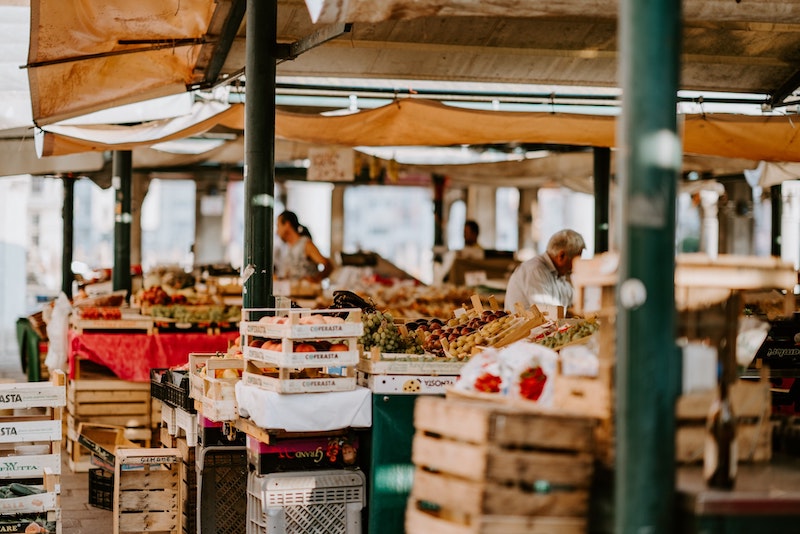According to economic experts, food is one of the highest categories of household expenditure. On average, households spend at least 10% of their individual incomes purely on what they eat. Matter of fact, food is actually the 5th most highest of the 15 expenditure categories for households. Shockingly, families spend more on food than even healthcare, personal care and education. There are two explanations for that.
First, food is one of the basic needs and necessities for human beings. It’s hard to imagine being alive without it. Secondly, households are generally wasteful when it comes to food. They lack the knowledge on how to eat healthy without spending more. Fortunately, this article shares a few tips on how to save money on food. For those who wish to control their expenditure on what they eat, this article is for you. Without further ado, let’s begin with the first tip:
1. Buy Your Grocery In Bulk
From where I come, not so many households buy food in bulk. Many families purchase only what they intend to consume at that particular moment for one reason or another. One reason is financial limitation. Another reason is poor financial management skill. Unless you don’t have the financial means to, buy food in bulk quantities you can consume for weeks before shopping again. It’s simply cheaper and going to let you save a good deal of cash on your nutritional expenditure.
2. Consider Signing Up To A Meal Kit Delivery Service
No one can dispute the fact that meal kit delivery services are a great way to save money on food. One of the reasons top brands such as Sun Basket and Hello Fresh are popular is that they enable families to feed and get their nutritional requirements for less. Basically, these companies deliver ingredients plus recipes households can use to cook their desirable dishes at a cheaper cost. You can read this engaging post about the two entities. The article gives a detailed comparison and contrast between the two meal kit delivery services. It takes a closer look at the meal varieties plus the dietary options offered by each entity. Also, the post compares and contrasts the two meal kit delivery services in terms of how easy it is to order food from each meal kit delivery service.
Home Chef is a good alternative to Sun Basket and Hello Fresh. If the two meal kit delivery services above don’t impress you for one reason or another, you might want to give this meal kit delivery service a try.
Having said that, if you compare the amount you would spend when using a meal kit delivery service to that which you would part with when using a grocery store or supermarket for the same ingredients, the former would be lower than the latter.
3. Buy Your Groceries From The Market As Opposed To A Supermarket Or Mall
Did you know that it’s actually costlier to buy food in supermarkets and/or malls than to do so in traditional marketplaces? Yes, you read that right, choosing to buy your foods from your local marketplace as opposed to a grocery store, supermarket or mall will result in you saving a lot of cash. That’s because while traditional marketplaces are run by the government, grocery stores, supermarkets and malls are mostly individual peoples’ businesses. They incur high running costs which are then passed down to the buyer.

4. Avoid Wasting Food
There’s no need to cook food in excessive quantities because you’ll have leftovers, which are a waste of food and money. Be sure to cook food in quantities that will not result in leftovers. Leftover food is bad in terms of quality and most of it ends up in the garbage bin. By checking the quantity whenever you cook, there will be no leftovers that would otherwise end up going to waste. It’s a proven method for saving money on food expenditure.
5. Learn To Reuse Leftover Food
According to statistics, 40 percent of all food is wasted in the US,which is a sad state of affairs! Some of the reasons people waste food in their homes is by cooking excessive quantities they cannot finish. The good news is that there are several ways in which leftover food can be reused. For example, you can;
i. Avoid cooking new food until you exhaust your leftovers.
ii. Store your leftovers properly for future use even if it means refrigerating or freezing them.
iii. Reinvent your leftovers and use them as ingredients for new dishes.
iv. Sell your leftover food at a discount if you don’t wish to donate them. There are many apps and websites you can use for that job.
6. Buy Leftover Food for Less
Instead of buying expensive food why not purchase leftover food for less? It’s similar to buying a quality used car as opposed to a new one. Both will serve the same purpose, other factors remaining constant. Some nice apps you can check out for quality leftover foods include Food For All, Food Rescue Hero, Food Rescue US and GoMkt.
Final Thoughts
Looking at the statistics shared by experts, there’s no doubt the fact that households spend a very significant portion of their incomes on food. While food is a basic necessity we can’t do without, there’s no doubt about the fact that we tend to spend more on it than we actually need to. Families part with more for their nutritional needs simply because of a few mistakes here and there. These mistakes are; not buying food in bulk for buyers who are able to, not taking advantage of meal kit delivery services, and rushing to buy food in supermarkets or shopping malls as opposed to traditional marketplaces. Other mistakes are; preparing excessive quantities of food than necessary, disposing of leftover food as opposed to reusing it, and not taking advantage of cheaper food options such as leftovers for sale. Avoid making these blunders and you’ll see your food expenditure drop significantly.

